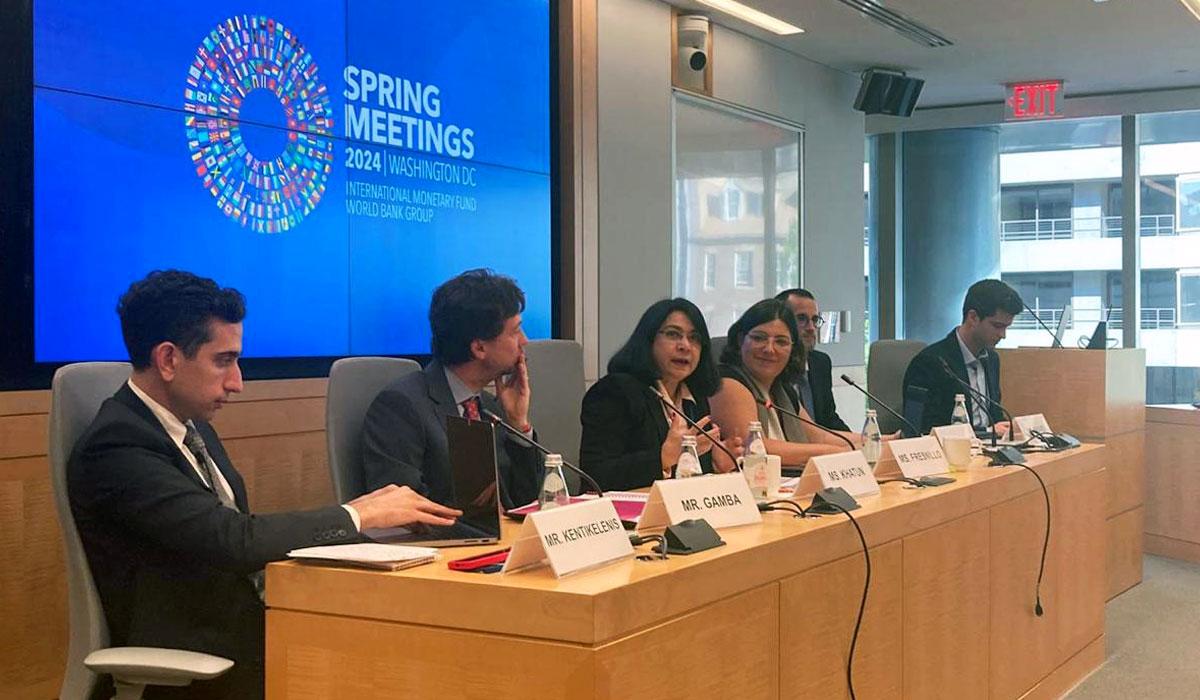
Following the Resilience and Sustainability Trust (RST) interim review, discussions took place on how the International Monetary Fund (IMF) and the World Bank Group (WBG) are shaping the conversation around macro-critical importance of climate change, including through the RST and World Bank Development Policy Financing (DPF). The session was held on Thursday, 18 April, 2024 and covered concrete recommendations and steps forward that stakeholders can consider for the RST interim review.
In the session, Dr Fahmida Khatun stated ‘Based on the experiences of Bangladesh, Barbados, and Jamaica, and the report prepared, it is evident that post-Covid and war, Bangladesh faced balance of payment challenges, receiving support from initiatives like the RST and ESF’. She highlighted that the country’s vulnerability to climate change necessitates support from RSF, particularly for adaptation efforts. However, there are tensions regarding reform measures under RST, especially concerning removal energy price subsidies, which are important for Bangladesh’s agriculture-based economy.
‘Moreover, conditionalities under RSF often focus on short-term stability, which should align with long-term development goals of the country’ underscored Dr Khatun. Loss and Damage is a critical issue for Bangladesh, as economic losses from climate impacts exacerbate poverty and displacement. As recommendations, improving RST requires enhancements in resource mobilisation, elimination of concurrent programmes, holistic approach design (integrating short and long term), impactful finance catalysis, and stakeholder engagement for better outcomes.
Funding is crucial, particularly for adaptation efforts, which may not be profitable for the private sector. This highlights the importance of public financing. Effective fund usage is vital, as it needs to be comprehensive and packaged appropriately to address both mitigation and adaptation needs.


